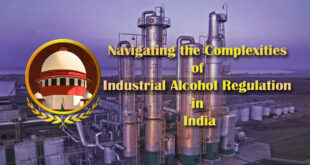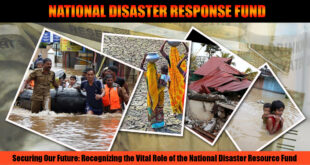Concept : Plastic pollution is a major environmental threat, harming ecosystems, wildlife, and human health. The global plastic waste problem is projected to worsen significantly without robust intervention. In recognition of this urgency, the United Nations Environment Assembly (UNEA) passed a resolution in 2022 to develop a new global treaty …
Read More »Green Bond
Concept Green bonds have emerged as a financial instrument aimed at channeling investments into environmentally sustainable projects. As the world grapples with climate change and environmental degradation, green bonds offer a mechanism to finance initiatives that mitigate environmental impact and promote sustainability. Definition of Green Bonds: Green bonds are debt …
Read More »The Transplantation of Human Organs and Tissues Act (THOTA)
Concept The Transplantation of Human Organs and Tissues Act (THOTA) was enacted in India in 1994 to regulate organ donation, retrieval, and transplantation. It aimed to prevent commercial dealings in organs and ensure ethical practices in organ transplantation. However, despite its noble intentions, several challenges persist in its implementation. Provisions …
Read More »INDOSRI LANKA agreement on 1974
Introduction The term “Katchatheevu” translates to “barren island” in the Tamil language. Situated in the Palk Strait, Katchatheevu Island spans approximately 285 acres and remains uninhabited. It lies between India and Sri Lanka, serving as a point of geographical significance in the region. Katchatheevu Island Located 33 km northeast of …
Read More »Corrupt practices under RPA,1951
What is the Representation of People Act, 1951? The electoral framework in India is regulated by specific sections within the Indian Constitution, namely Articles 324 to 329 of Part XV. These provisions empower the Parliament to formulate legislation pertaining to both national and statelevel elections. Article 324 specifically establishes the …
Read More »Curative petition
Definition: A curative petition is a legal remedy available in India to address final judgments or orders of the Supreme Court that may have resulted in a miscarriage of justice or violated fundamental rights. It is considered as the last resort for seeking a review of a judgment after exhausting …
Read More »Industrial Alcohol -Centre and State Laws for its Regulation
Concept : Industrial alcohol, unlike alcoholic beverages, is not meant for human consumption (denatured). It finds applications in various sectors, including manufacturing pharmaceuticals, disinfectants, chemicals, and even biofuels. Constitutional Framework: State List (Entry 8): Entry 8 in the State List grants states authority over intoxicating liquor legislation, including production, possession, …
Read More »UNHRC – Council for Preventing Human Rights Violations
Concept: The UNHRC is a subsidiary body of the United Nations General Assembly (UNGA) responsible for promoting and protecting human rights worldwide. It was established in 2006, replacing the United Nations Commission on Human Rights (UNCHR), with the aim of addressing the shortcomings of its predecessor and enhancing the …
Read More »Securing Our Future: Recognizing the Vital Role of the National Disaster Resource Fund
TABLE OF CONTENTS News Concept of NDRF Key Features of NDRF News: Tamil Nadu on Wednesday filed a suit in the Supreme Court accusing the Union government of treating the people of the State in a “step-motherly” fashion by delaying the release of disaster relief funds of nearly ₹38,000 …
Read More »Promoting Global Security and Peace: The Multifaceted Mandate and Initiatives of UNODA
TABLE OF CONTENTS UNODA Objectives and Functions Key Initiatives and Programs I.UNODA: United Nations Office for Disarmament Affairs • Established in 1982, UNODA serves as the principal United Nations office dealing with disarmament matters. • Mandate includes promoting nuclear disarmament, non-proliferation, and arms control, among other disarmament efforts. • Headquartered …
Read More » Chinmaya IAS Academy – Current Affairs Chinmaya IAS Academy – Current Affairs
Chinmaya IAS Academy – Current Affairs Chinmaya IAS Academy – Current Affairs









